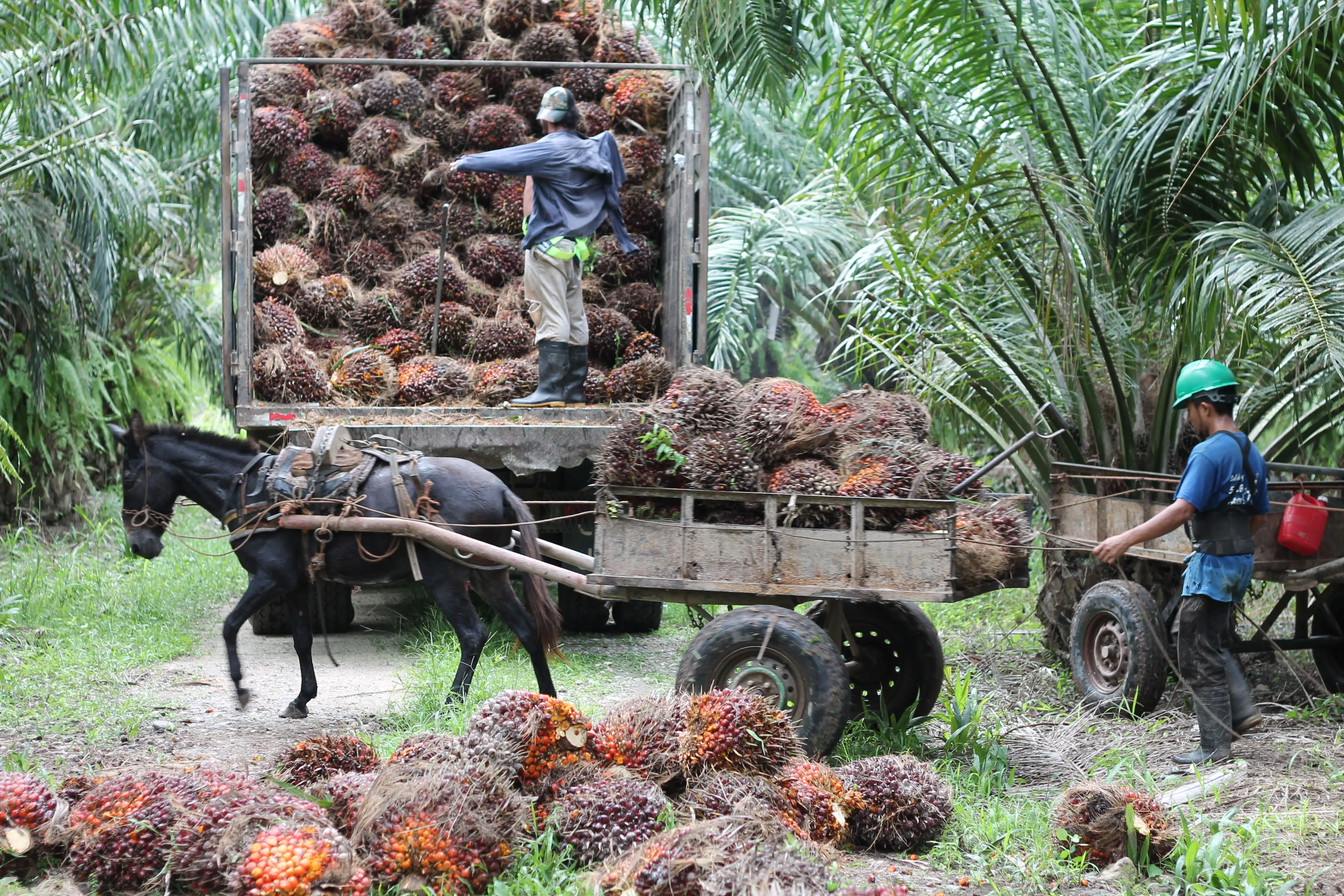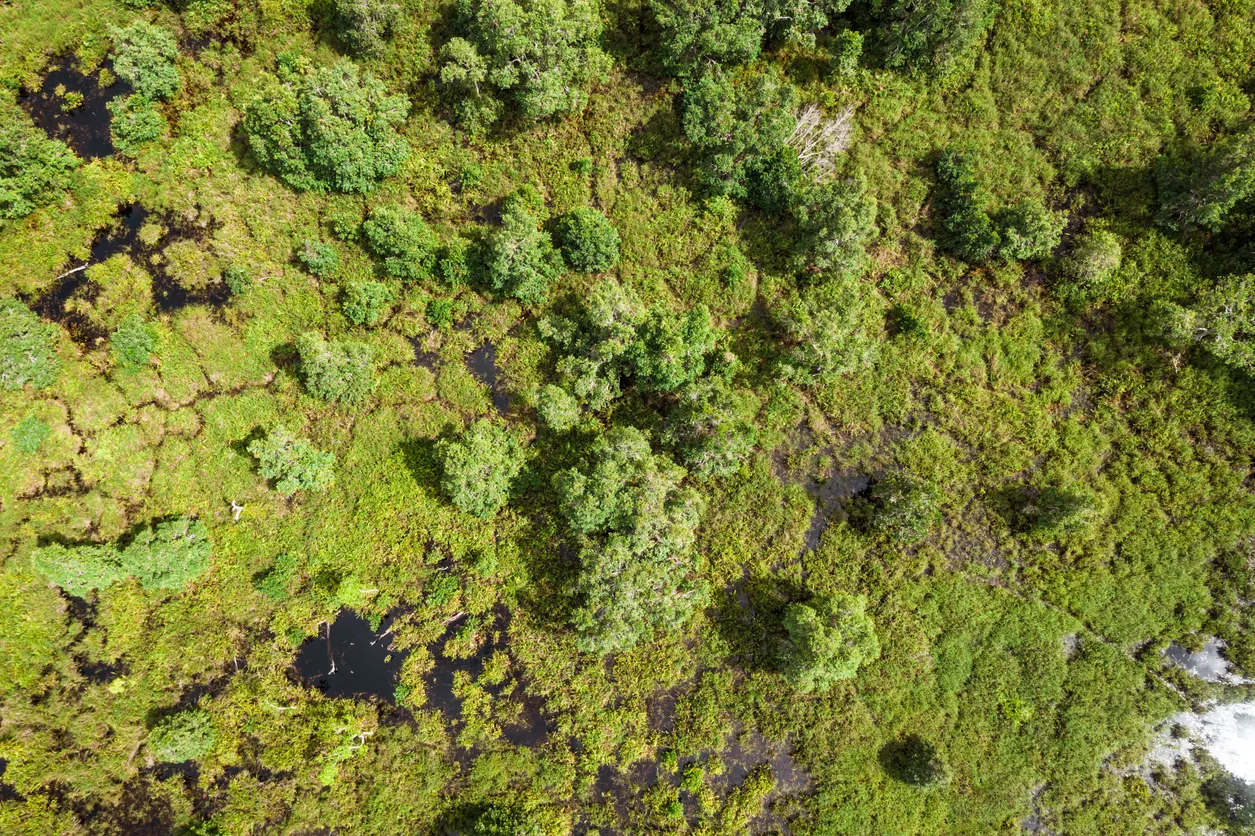
Protecting southeastern Mexico’s unique environmental and social character using the HCV Approach
Two years ago, HCVN and FEMEXPALMA signed a cooperation agreement to promote sustainable practices in palm oil production through conservation, capacity building, and outreach. Today, the contributions of small-scale producers have become essential in the protection of High Conservation Values.
The palm oil sector in Mexico has grown exponentially since the crop was introduced in the early 1950s, partly due to government programmes that incentivised farmers to plant African palm in the 1990s. To date, there are around 120,000 hectares of oil palm plantations in the southeastern region distributed into four states: Veracruz, Tabasco, Campeche, and Chiapas, with Chiapas having the largest area under cultivation.
Although the palm oil area cultivated is relatively small compared to other crops such as corn (+7 million hectares) or sugarcane (+700,000 hectares), it is anticipated that oil palm production will continue to increase in Mexico due to various factors, primarily the rise in the price of palm oil globally. Most of the plantations are owned by small producers, who cultivate no more than 10 hectares, and often intercrop with banana and cacao.
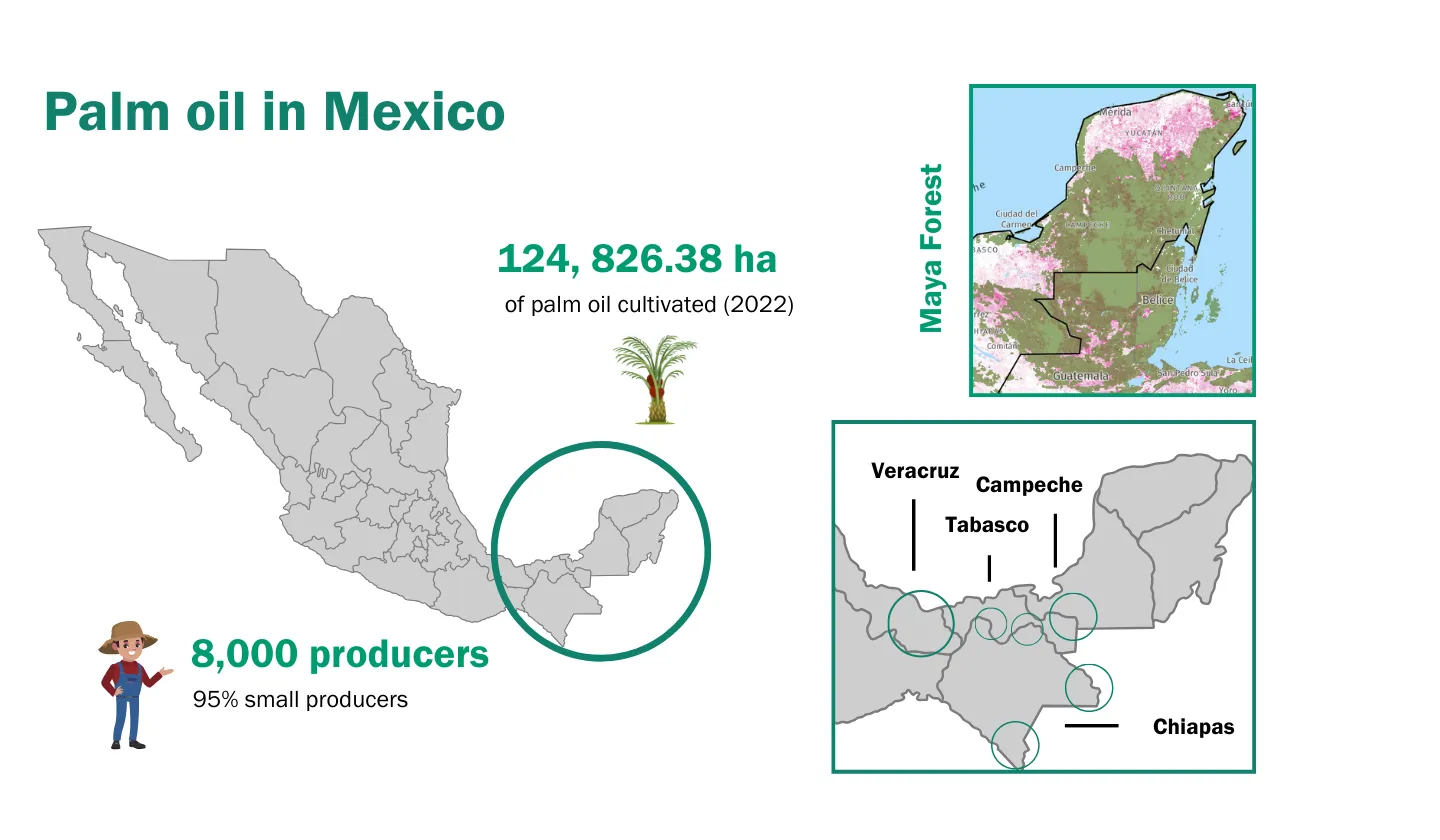
Fantastic forests with lifelong benefits to Mexican society and culture
The Mayan Forest is also found in southeastern Mexico. It is the most extensive tropical forest in Mesoamerica which stretches across Belize, northern Guatemala and Mexico's Yucatan Peninsula. Home to iconic species such as the jaguar and tapir, its ecosystems provide essential functions by maintaining water flow and landscape connectivity. The region also has rich cultural diversity and outstanding archaeological sites.
The integrity of the Mayan Forest is crucial for the subsistence of local communities and indigenous peoples in the region. While cultivation of oil palm contributes to rural development in the region, without technical support to small producers and strategic planning based on environmental and social criteria, it can lead to unregulated forest conversion and degradation of ecosystems.
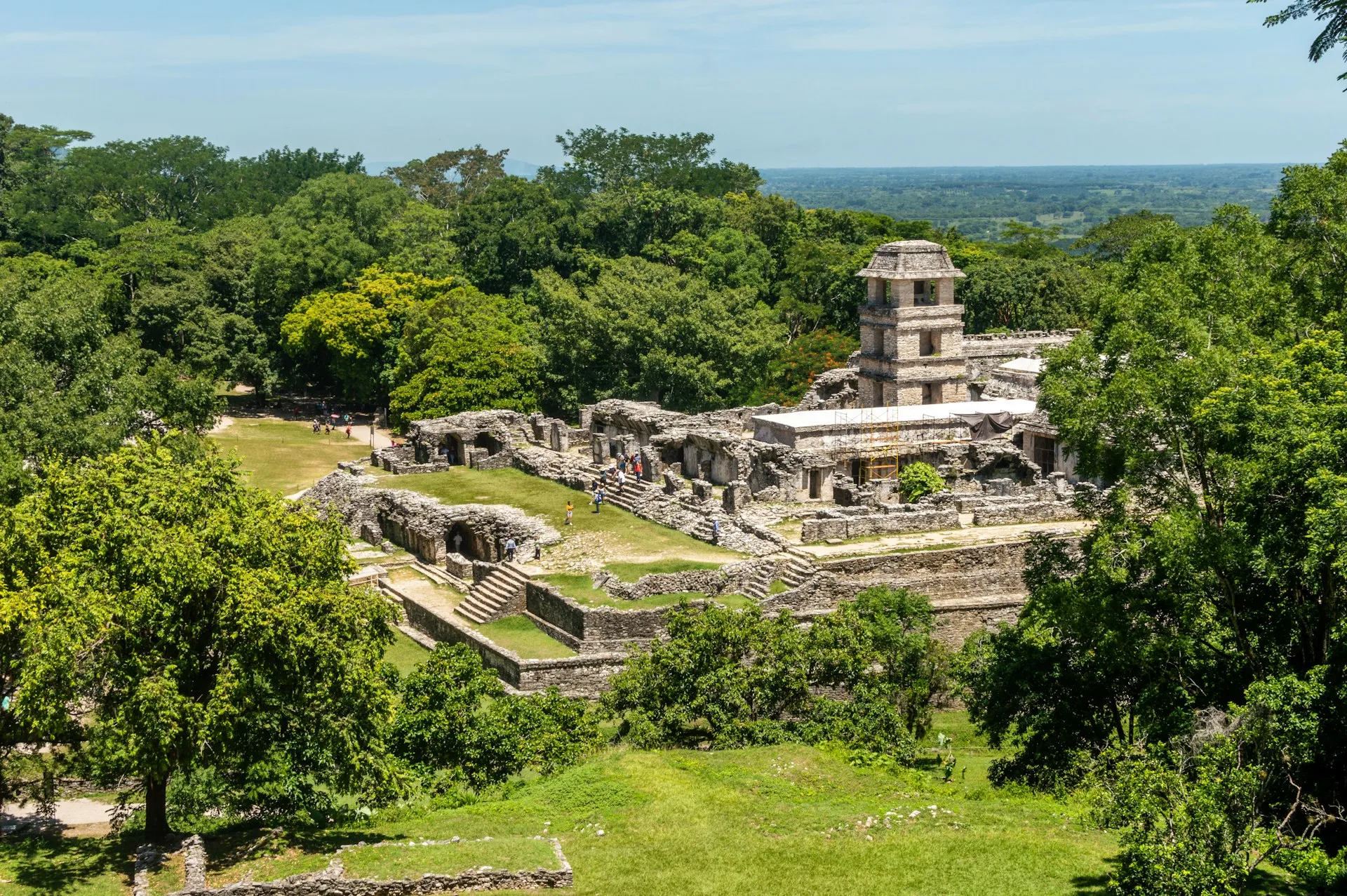
Though expansion of palm oil production is part of Mexico’s National Agriculture Plan 2030, Mexican producers must pay attention to international regulatory measures in order to comply with production requirements established by the European Union. Helping producers understand and manage these requirements are voluntary sustainability standards, like certification for oil palm by the Roundtable on Sustainable Palm Oil (RSPO).
As an example, the EU regulation on deforestation-free products (EUDR) will require companies that sell products produced with palm oil, soy and beef, among others, to ensure they are deforestation-free before either entering the European market or being exported from the EU.
Using the HCV Approach to plan for deforestation free production
With global markets working harder to achieve sustainability and avoid irreparable damage to essential natural resources, the High Conservation Value (HCV) Approach methodology is an excellent starting point to support Mexican palm oil producers as they transition to sustainable deforestation-free practices.
Identification of what HCVs are present - and planning to ensure that oil palm and other crops are not grown at the expense of supportive ecosystems like forests - becomes an excellent building block and guide for responsible land-use planning and landscape management. Getting to this big picture, where impacts and dependencies are well understood, is only possible through close collaboration with the palm oil producers themselves, communities, local governments, civil society organisations, and technical institutions.
Collaborating for positive impact through the Latin American HCV Working Group
In 2022, to promote this approach and support producers with their sustainability challenges, the Mexican Federation of Oil Palm (FEMEXPALMA) and the HCV Network signed a five-year cooperation agreement to promote sustainable practices of palm oil production through conservation, capacity building and outreach.
FEMEXPALMA was the first oil palm federation to sign a cooperation agreement with the HCV Network. Through this agreement, FEMEXPALMA producers show their commitment to produce palm oil sustainably in Mexico. Since the agreement was signed, FEMEXPALMA and the HCV Network have collaborated in outreach projects and joint fundraising.
One of the most exciting outcomes has been the creation in 2023 of the Latin American HCV Working Group, a platform coordinated by the HCV Network, where a range of stakeholders can share their experiences of implementing the HCV Approach in the region and jointly develop ideas for improvement and cross-collaboration.
Oil palm producers becoming the custodians of HCVs
Working with HCVN and its members, including Proforest and RSPO, FEMEXPALMA has been pushing for sustainable development of the Mexican palm oil sector through various fronts. One is through the Holistic Programme, an initiative that started in 2017 with companies PepsiCo, Nestlé, Cargill, Oleofinos, and Oleopalma. The initiative has evolved into five pillars, focused around enhancing the technical capacities of Mexican mills, promoting small-scale producers’ inclusion, and promoting forest conservation and restoration. Through the Holistic Programme, 117 small-scale producers and 6 mills achieved the first eligibility milestone in RSPO certification and have learned about the importance of identifying and protecting HCVs in and around their plantations, and sharing the same message with their community and workers.
They have become custodians of HCVs.
“Seeing wildlife in our plantations is really nice. They’ve given us courses about High Conservation Values and we are instilling our workers the need to care for the environment in that way”. Luis Alberto Lopez, small-scale producer.
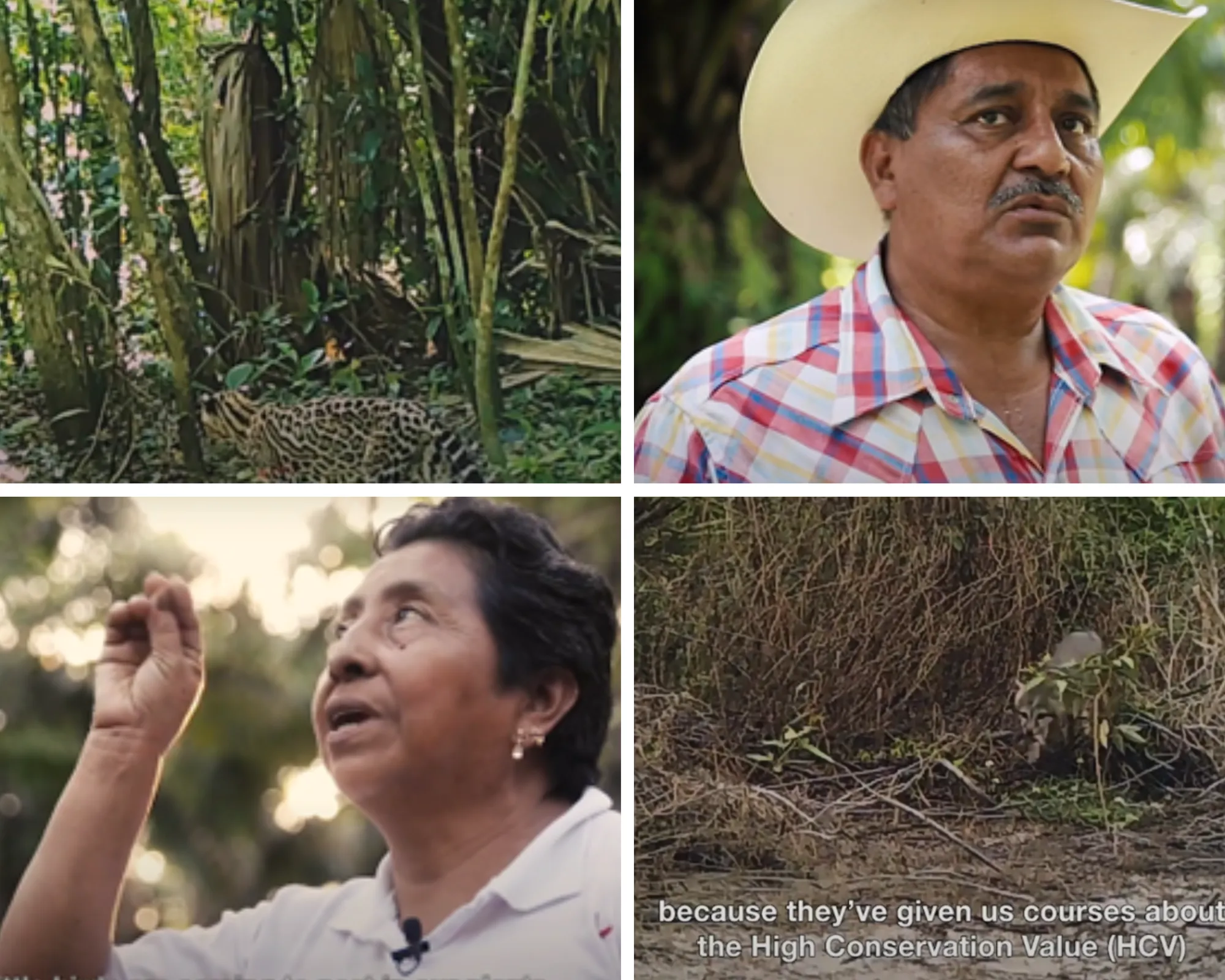
Planning oil palm cultivation while maintaining ecosystems and livelihoods
Since 2019, the Earthworm Foundation through the "Chiapas Landscape" Project has been working on planning oil palm cultivation with small producers, strengthening their capacities on the sustainable management of natural resources and managing agricultural lands through Integrated Farm Plans. Through these, an action plan for productive, social, and environmental management of farmers' productive areas is carried out. Since 2023, Earthworm-Mexico has implemented the HCV Approach through Integrated Farm Plans to promote the conservation of priority connectivity areas between ecosystems in the influence areas of the La Encrucijada Biosphere Reserve; the restoration and protection of riparian areas with actions that reduce the dispersal of oil palm seeds in mangrove ecosystems; and compliance with the Reserve Management Program for producers within the Protected Area, ensuring the resilience of families while protecting ecosystems.
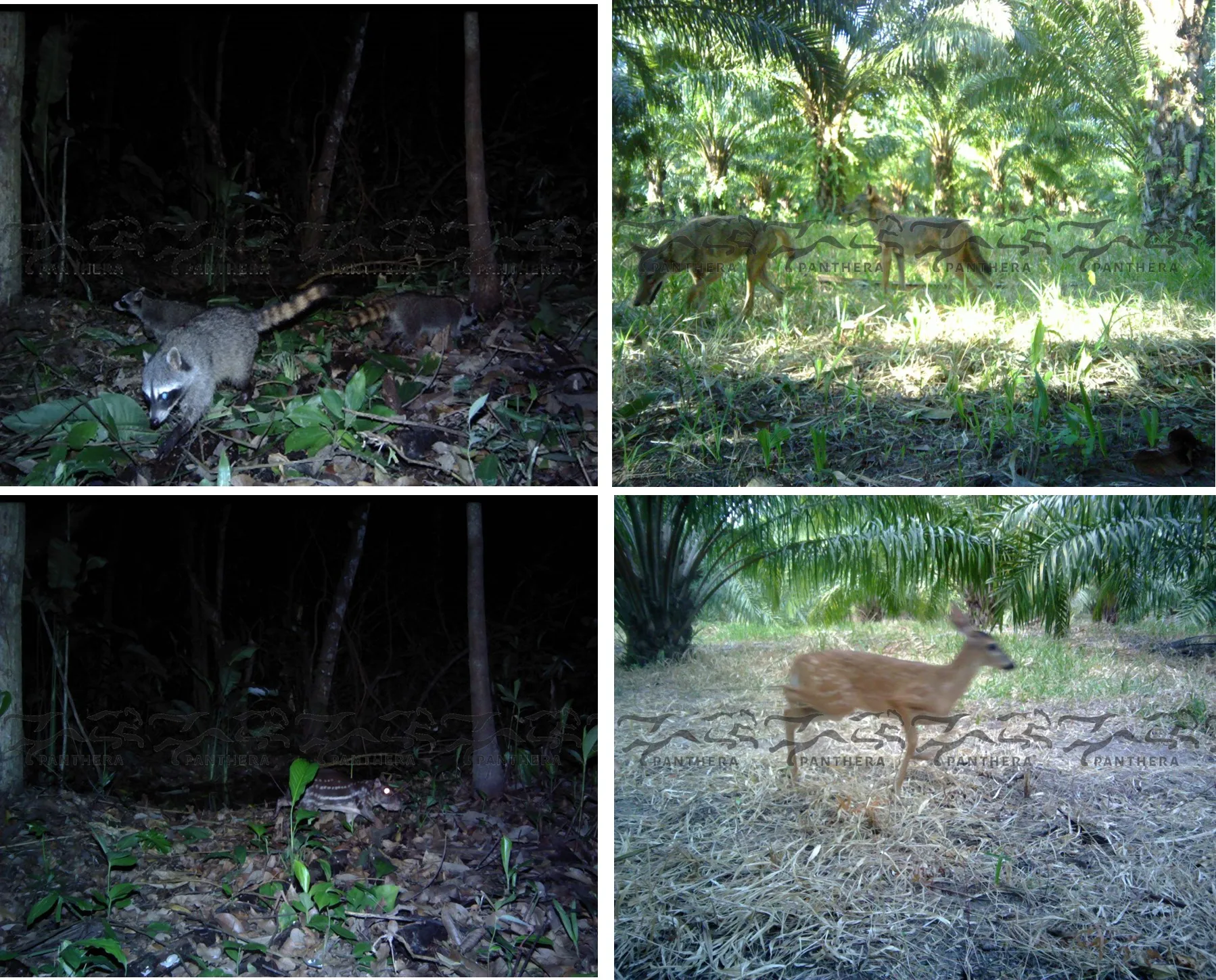
Bringing the sector onto a more sustainable path is essential if responsible business is to become mainstream in a country where poor land-use planning is putting critical natural, social, and cultural values at risk.
This work is just starting but we are excited to see how it transforms and grows. Through our collaboration with FEMEXPALMA, Earthworm Foundation and other partners and Members, we will continue to advocate for the protection of HCVs in Mexico and other countries in the region, and create lasting positive impacts for nature and people.
Related Posts
Protegiendo el carácter ambiental y social único del sureste de México con el Enfoque de AVC
Hace dos años, HCVN y FEMEXPALMA firmaron un acuerdo de cooperación para promover prácticas sostenibles de producción de aceite de palma a través de la conservación, el desarrollo de capacidades y la divulgación. Hoy, el involucramiento de los pequeñosproductores se ha vuelto esencial en la protección de los Altos Valores de Conservación.
Read MoreProtecting southeastern Mexico’s unique environmental and social character using the HCV Approach
Two years ago, HCVN and FEMEXPALMA signed a cooperation agreement to promote sustainable practices in palm oil production through conservation, capacity building, and outreach. Today, the contributions of small-scale producers have become essential in the protection of High Conservation Values.
Read MoreDébloquer des incitations pour des solutions fondées sur la nature avec les communautés forestières
L'outil Forest Integrity Assessment (FIA) est une approche de liste de contrôle simple et conviviale conçue pour permettre aux gestionnaires de terres et à d'autres non-biologistes d'effectuer des estimations rapides et efficaces de l'état de la biodiversité forestière.
Read MoreOur Partnerships
Alongside many global initiatives, our work with partners promotes practices that help meet the global Sustainable Development Goalsand build a greener, fairer, better world by 2030.


Femexpalma
In April 2022, FEMEXPALMA and the HCV Network signed a 5-year cooperation agreement to promote sustainable production of palm oil in Mexico. FEMEXPALMA is a Mexican independent entity that represents palm production at the national level and promotes the increase of productivity in a sustainable way.
With global markets becoming stricter, for Mexican producers to be able to export to key markets such as the European Union, they must meet strict requirements such as certification by the Roundtable on Sustainable Palm Oil (RSPO). To be certified by RSPO, the HCV Approach must be applied prior to the establishment of any new oil palm plantations. With this cooperation agreement, the HCV Network will support FEMEXPALMA’s members and allies to design better strategies to identify, manage and monitor High Conservation Values and support smallholders to achieve RSPO certification and implement good agricultural practices.
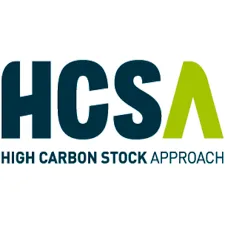

High Carbon Stock Approach
The High Carbon Stock Approach (HCSA) is an integrated conservation land use planning tool to distinguish forest areas in the humid tropics for conservation, while ensuring local peoples’ rights and livelihoods are respected.
In September 2020, HCV Network and the HCSA Steering Group signed a five-year Memorandum of Understanding (MoU) to strengthen their collaboration to conserve forests and uphold community rights in tropical forests. The HCS and HCV Approaches are cornerstones of corporate no deforestation and conservation commitments, and increasingly for actors working at different scales. The collaboration aims to further support effective implementation of these commitments through increased uptake of the HCV and HCS tools.
Through this MoU, HCSA and HCVRN are pursuing two main strategic goals:
- Strive to promote the application of the two approaches in tropical moist forest landscapes and explore further opportunities for collaboration.
- Ensure that, where the two approaches are applied together, this happens in a coordinated, robust, credible, and efficient manner, so that HCS forests and HCVs are conserved, and local peoples’ rights are respected.


World Benchmarking Alliance
From May 2022, the HCV Network is an ally at the World Benchmarking Alliance (WBA). WBA is building a diverse and inclusive movement of global actors committed to using benchmarks to incentivise, measure, and monitor corporate performance on the SDGs, and will assess and rank the performance of 2,000 of the world’s most influential companies against seven systems of transformation by 2023.
The scope of WBA’s circular transformation was expanded to cover nature and biodiversity as recognition of the need for greater understanding, transparency and accountability of business impact on our environment. The WBA Nature Benchmark was launched in April 2022, which will be used to rank keystone companies on their efforts to protect our environment and its biodiversity. As HCV Areas are recognised as key areas important for biodiversity, companies that publicly disclose their actions to identify and protect HCVs will contribute to the assessment of their performance against the benchmark.
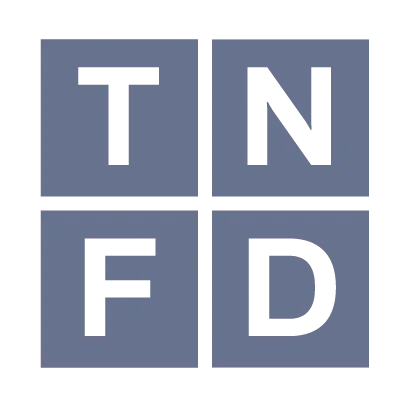

Taskforce on Nature-related Financial Disclosures - TNFD
The Taskforce on Nature-related Financial Disclosures (TNFD) is a global, market-led initiative, established with the mission to develop and deliver a risk management and disclosure framework for organizations to report and act on evolving nature-related risks, with the aim of supporting a shift in global financial flows away from nature-negative outcomes and toward nature-positive outcomes.
In April 2022, the HCV Network joined the TNFD Forum. The TNFD Forum, composed of over 400 members, is a world-wide and multi-disciplinary consultative network of institutional supporters who share the vision and mission of the task force.
By participating in the Forum, the HCV Network contributes to the work and mission of the taskforce and help co-create the TNFD Framework which aims to provide recommendations and advice on nature-related risks and opportunities relevant to a wide range of market participants, including investors, analysts, corporate executives and boards, regulators, stock exchanges and accounting firms.


Aquaculture Stewardship Council
The Aquaculture Stewardship Council (ASC) is the world’s leading certification scheme for farmed seafood – known as aquaculture – and the ASC label only appears on food from farms that have been independently assessed and certified as being environmentally and socially responsible. In 2021, the HCV Network and ASC formalised their collaboration through a Memorandum of Understanding (MoU). The MoU represents the first step in a fruitful relationship aimed at conserving HCVs in aquaculture. Although, existing guidance on the use of the HCV Approach currently focuses mainly on forestry and agriculture, the HCV Approach is however generic, and in principle also applicable to aquatic production systems. Through this MoU, this is recognised by the Aquaculture Stewardship Council (ASC) in their ASC farm standard, in which the protection of HCV areas is mentioned in the context of expansion
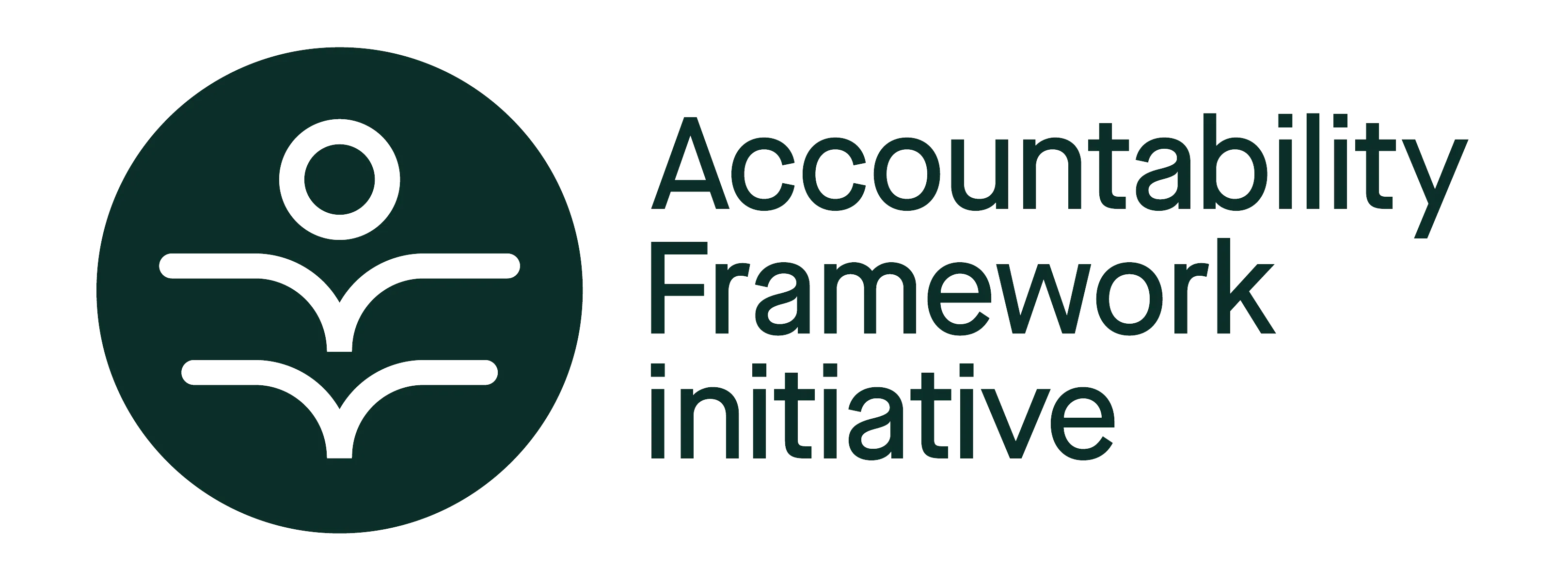

Accountability Framework Initiative
The Accountability Framework initiative (AFi) is a collaborative effort to build and scale up ethical supply chains for agricultural and forestry products. Led by a diverse global coalition of environmental and human rights organizations, the AFi works to create a “new normal” where commodity production and trade are fully protective of natural ecosystems and human rights. To pursue this goal, the coalition supports companies and other stakeholders in setting strong supply chain goals, taking effective action, and tracking progress to create clear accountability and incentivize rapid improvement. In July 2022, the HCV Network joined AFi as a Supporting Partner. AFi Supporting Partners extend the reach and positive impact of the AFi by promoting use of the Accountability Framework by companies, industry groups, financial institutions, governments, and other sustainability initiatives, both globally and in commodity-producing countries.


Biodiversity Credit Alliance
The Biodiversity Credit Alliance (BCA) is a global multi-disciplinary advisory group formed in late 2022. Its mission is to bring clarity and guidance on the formulation of a credible and scalable biodiversity credit market under global biodiversity credit principles. Under these principles, the BCA seeks to mobilize financial flows towards biodiversity custodians while recognising local knowledge and contexts.
The HCVN joined the BCA Forum in August 2023 to learn more from the many organizations already coming together to find effective pathways to opening up credit-based approaches, and how to contribute our knowledge and experience of years of working in a practical way, often with global sustainability standards and their certified producers, to protect what matters most to nature and people.
.webp)
.webp)
Nature Positive Forum
The Nature Positive Initiative is a group of stakeholders coming together to find ways to unlock success and achieve Nature Positive - a global societal goal defined as ‘halt and reverse nature loss by 2030 on a 2020 baseline, and achieve full recovery by 2050’, in line with the mission of the Kunming-Montreal Global Biodiversity Framework.
Core work includes preserving the integrity of ‘Nature Positive’ as a measurable 2030 global goal for nature for business, government, and other stakeholders, and providing the tools and guidance necessary to allow all to contribute. The initiative also advocates for the full implementation of the Kunming-Montreal Global Biodiversity Framework by governments and other stakeholders.
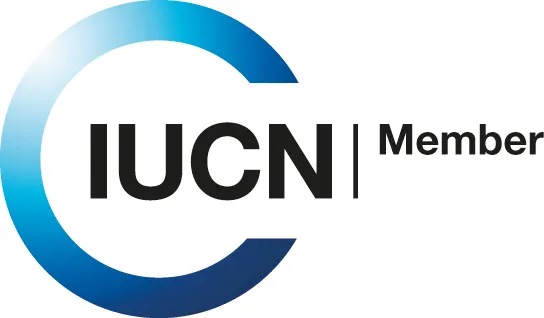

IUCN
IUCN is a membership Union uniquely composed of both government and civil society organisations. It provides public, private, and non-governmental organisations with the knowledge and tools that enable human progress, economic development, and nature conservation to take place together.
Created in 1948, IUCN is now the world’s largest and most diverse environmental network, harnessing the knowledge, resources and reach of more than 1,400 Member organisations and around 15,000 experts. It is a leading provider of conservation data, assessments, and analysis. Its broad membership enables IUCN to fill the role of incubator and trusted repository of best practices, tools, and international standards.
IUCN provides a neutral space in which diverse stakeholders including governments, NGOs, scientists, businesses, local communities, indigenous peoples’ organisations, and others can work together to forge and implement solutions to environmental challenges and achieve sustainable development.
Working with many partners and supporters, IUCN implements a large and diverse portfolio of conservation projects worldwide. Combining the latest science with the traditional knowledge of local communities, these projects work to reverse habitat loss, restore ecosystems, and improve people’s well-being.

Get Involved
Our Mission as a network is to provide practical tools to conserve nature and benefit people, linking local actions with global sustainability targets.
We welcome the participation of organisations that share our vision and mission to protect and enhance High ConservationValues and the vital services they provide for people and nature. By collaborating with the Network, your organisation can contribute to safeguarding HCVs while gaining valuable insights and connections that support your sustainability goals.
We are seeking collaborative partners to help expand and enhance our work, as well as talented professionals who can join the growing Secretariat team, and for professionals who can contribute to the credible identification of High Conservation Values globally.
Join us in securing the world’s HCVs and shaping a sustainable future.
